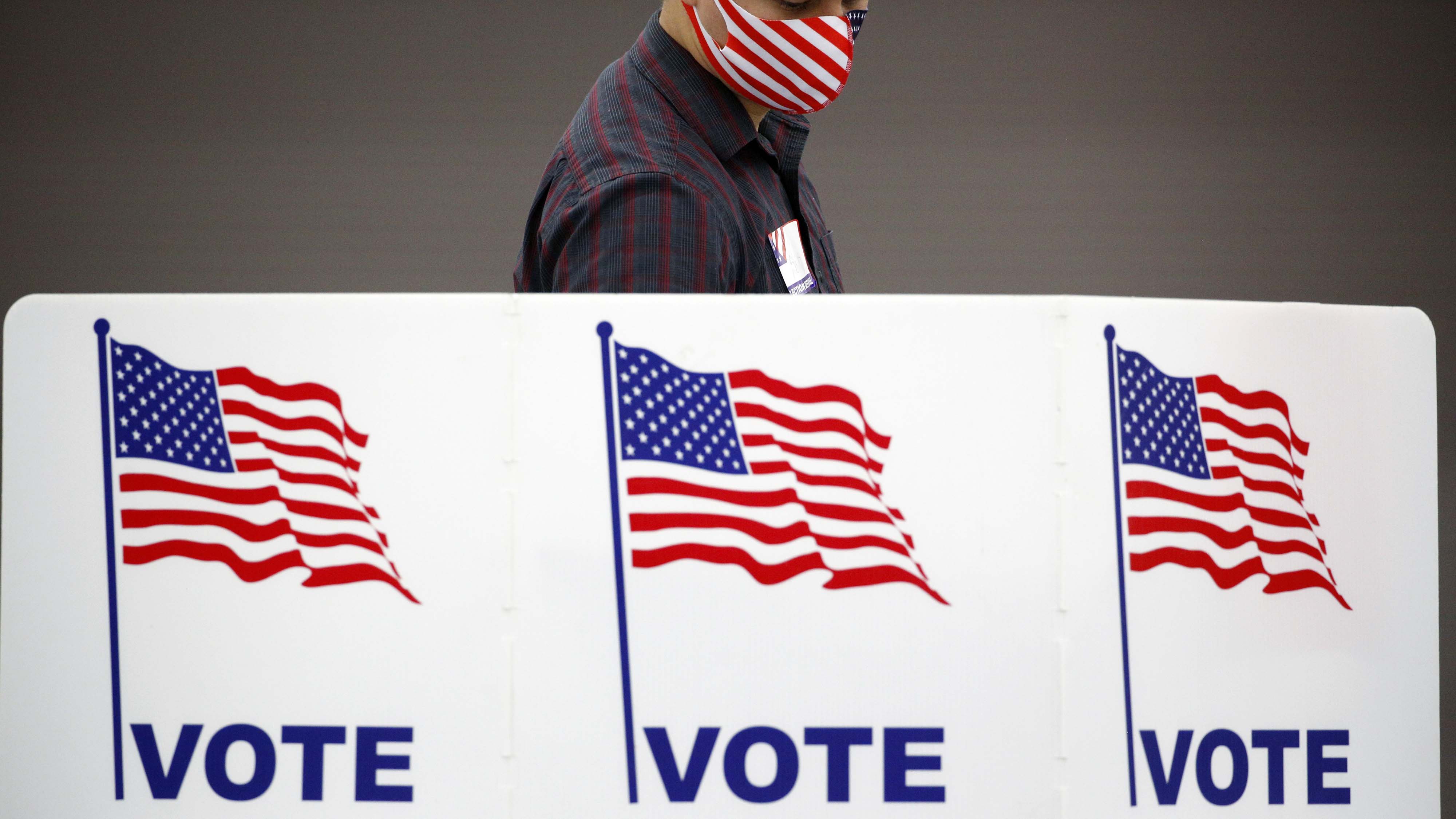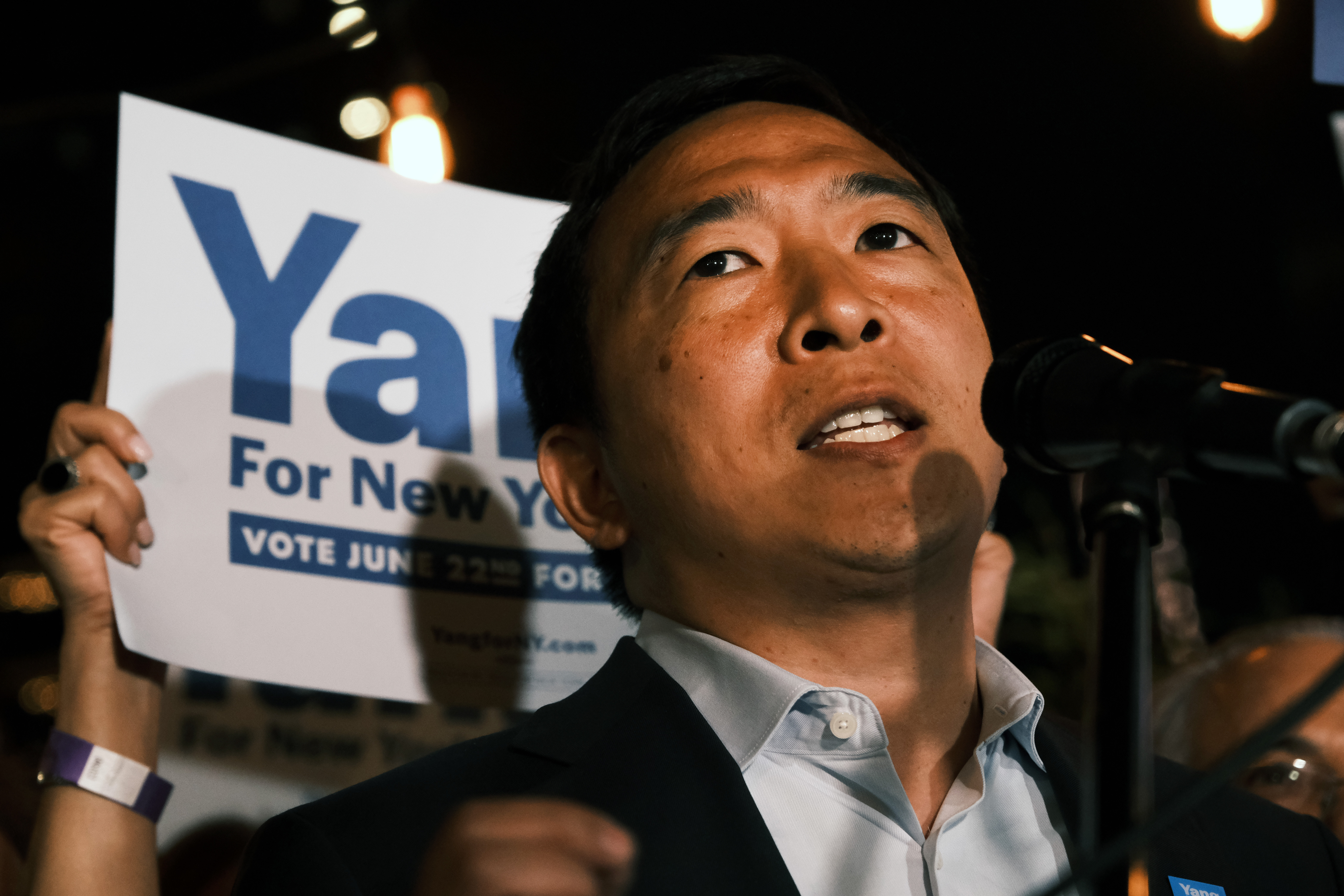What to Know
- Tuesday's primary election marked the first done by ranked choice voting in New York City; voters were given the opportunity to rank up to five candidates in their order of preference rather than just one
- That process means it could take weeks to finalize the votes; we should get unofficial results for in-person first-choice votes on Tuesday night; a week later, the Board of Elections runs the ranked choice voting tabulation and releases another set of unofficial results
- Absentee ballots are calculated a week after that; aside from the high-profile race for NYC mayor, other key races to watch include the Manhattan borough president and DA contests and NYC comptroller
Brooklyn Borough President Eric Adams appeared to take a fragile lead in New York City’s Democratic mayoral primary, but it could be weeks before it becomes clear who is actually on top in the first citywide election to use ranked choice voting.
As ballot counting began Tuesday, a plurality of Democrats ranked Adams as their first choice in the race. In a late night speech given at a campaign party, Adams all but declared victory — despite plenty of ranked-choice tabulations to go.
"There will be twos and threes, but New York City said our first choice is Eric Adams," he said.
It was tough to tell, though, whether that lead would hold. As many as 207,500 absentee ballots remain to be counted, which could be a total game-changer. Voters’ full rankings of the candidates have yet to be taken into account.
It could be July before a Democratic winner emerges.
Get Tri-state area news delivered to your inbox.> Sign up for NBC New York's News Headlines newsletter.
More than 944,000 New Yorkers voted in this year's primary, 853,000 of which were done in person. This year's primary was the first time since 2013 the city has seen such a crowded field of Democrats running for the mayoral seat.
Civil rights attorney Maya Wiley insisted on Wednesday that she believes she has the ability to overtake Adams when the votes get redistributed in the weeks ahead.
“We’ve known all along that we have strong support in the top rankings, so we’re excited about the possibility here," Wiley said at a Brooklyn subway station on Wednesday. "We know we can win. The voters will decide. We will wait patiently.”
Gov. Andrew Cuomo spoke warmly about Adams, saying "I like him very much." But he added that no matter who on the Democratic side, it would be an upgrade for him personally compared to Mayor Bill de Blasio, who leaves office at the end of the year due to term limits.
"It's hard for me to work with an administration that is hyperpolitical and not competent," the governor said at a press conference Wednesday.
A spokesperson for the mayor fired back, saying "this is all coming from an insecure man so mired in his own scandals that he's actively rooting against New York City. It's sad and incoherent at this point, please root for the city, Mr. Governor."
De Blasio meanwhile interpreted dams' success as proof that the electoral blueprint he used to get elected eight years ago works.
"Eric obviously had an outer boroughs-focused strategy. That's a lot of what we did in 2013," he said.
Track live NYC primary results here
Several candidates in the race to succeed Mayor Bill de Blasio have the potential to make history if elected. The city could get its first female mayor or its second Black mayor, depending on who comes out on top, but the hope for the first Asian mayor has faded as Andrew Yang conceded shortly after the polls closed Tuesday night.
In the Democratic contest, the initial picture could be misleading. After polls closed at 9 p.m., New York City’s Board of Elections began releasing results of votes cast in person, but the returns focused on who candidates ranked as their first choice.
The ranked choice system, approved for use in New York City primaries and special elections by referendum in 2019, allowed voters to rank up to five candidates on their ballot in order of preference rather than merely select one
Vote tabulation is then done in computerized rounds, with the person in last place getting eliminated each round, and ballots cast for that person getting redistributed to the surviving candidates based on voter rankings. That process continues until only two candidates are left. The one with the most votes wins.
It won’t be until June 29 that the Board of Elections performs a tally of those votes using the new system. It won’t include any absentee ballots in its analysis until July 6, making any count before then potentially unreliable.
Decision 2021
Adams' small lead over Wiley and former city sanitation commissioner Kathryn Garcia could quickly change as soon as absentee ballot votes are counted on July 6.
At their respective campaign parties, all three of those candidates and their supporters sounded hopeful if not downright celebratory.
“This has been an amazing journey,” Adams told reporters after voting in Brooklyn earlier in the day, emotionally recounting how his path into both law enforcement and politics began at age 15, when he was beaten by police officers. “A little boy, laying on the floor of the 103rd Precinct, assaulted by cops, now could become the mayor to be in charge of that same police department.”
After casting his ballot, Adams predicted that he would win the Democratic primary, but also promised to accept the result if he did not. At his campaign party Tuesday night, most of his supporters sounded more celebratory than the other candidates'.
While Garcia's campaign said they were excited about the results, they said it was too soon for anyone to be celebrating until all the ranked choice ballots are counted, adding that they will be waiting patiently for those final numbers.
Meanwhile, Wiley danced with staff and supporters as Beyoncé played at her party in Crown Heights — a different site from earlier in the day, when she was losing her voice greeting voters near her polling place in Brooklyn.
Besides Adams, Garcia, Wiley and Yang, other contenders in the Democratic contest included City Comptroller Scott Stringer, former U.S. Secretary of Housing and Urban Development Shaun Donovan, former Citigroup executive Ray McGuire and nonprofit executive Dianne Morales.
Each of those candidates were far behind the others as the initial results came in, and addressed supporters after polls closed, although none aside from Yang conceded Tuesday night.
Stringer got a surprise, last-minute boost from Rep. Alexandria Ocasio-Cortez on Tuesday, after she said she put him down as her No. 2 choice. But that support may be too little, too late for Stringer's chances.
In the Republican primary, Guardian Angels founder Curtis Sliwa faced off against businessman Fernando Mateo. Because there are only two candidates in that race, ranked choice voting wasn’t a factor. Sliwa was declared the winner.
De Blasio, a Democrat, leaves office at the end of the year due to term limits. Gov. Andrew Cuomo spoke warmly about Adams, saying "I like him very much." But he added that no matter who on the Democratic side, it would be an upgrade for him personally compared to de Blasio.
"It's hard for me to work with an administration that is hyperpolitical and not competent," the governor said at a press conference Wednesday.
A spokesperson for the mayor fired back, saying "this is all coming from an insecure man so mired in his own scandals that he's actively rooting against New York City. It's sad and incoherent at this point, please root for the city, Mr. Governor."
De Blasio meanwhile interpreted dams' success as proof that the electoral blueprint he used to get elected eight years ago works.
"Eric obviously had an outer boroughs-focused strategy. That's a lot of what we did in 2013," he said.



